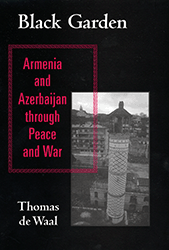[Deauville] Joint statement on the Nagorno-Karabakh Conflict, by the Presidents of the OSCE Minsk Group Co-Chair Countries at the G-8 Summit
We, the Presidents of the OSCE Minsk Group’s Co-Chair countries — France, the Russian Federation, and the United States of America — are convinced the time has arrived for all the sides to the Nagorno-Karabakh conflict to take a decisive step towards a peaceful settlement.
We reiterate that only a negotiated settlement can lead to peace, stability, and reconciliation, opening opportunities for regional development and cooperation. The use of force created the current situation of confrontation and instability. Its use again would only bring more suffering and devastation, and would be condemned by the international community. We strongly urge the leaders of the sides to prepare their populations for peace, not war.
read more









